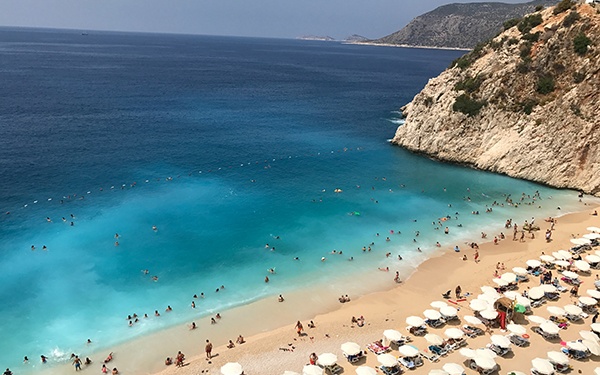Are you considering moving to Turkey from the UK?
More than 34,000 Brits have chosen to make Turkey their permanent home, so why is it so popular?
Could it be the gloriously hot, sunny climate? The stunning mountain pastures, glittering Mediterranean coastline, sun kissed sandy beaches, or the swathes of scented pine forests, olive groves and crystalline lakes? Is it the wealth of architectural wonders or the atmospheric bazaars? Or maybe it’s the fact that Turkey has some of the most mouthwatering cuisine in the world?
Turkey has all this and much more which makes it one of the top expat destinations in the Med.
Here’s our guide to the most important things you need to know if you’re thinking of making a move to Turkey…
Contents
Turkey Visa Requirements for Brits
Visiting
British nationals need a visa to enter Turkey. A visitors’ e-Visa can be applied for online in advance and covers Brits for stays of up to 90 days over a 180 day period.
If you plan to stay in Turkey longer than 90 days, you must apply for a residence permit before the 90 days ends or apply for a longer stay visa before you travel.
The residence permit is applicable to any expat who does not yet have an employment contract.
Residence permits are initially issued for a period of 1 year, but in order to apply it is necessary to provide proof of residence, proof of health insurance, and proof of your ability to support yourself financially over the duration of your stay.
Working
Brits wanting to work in Turkey must apply for a work permit.
Work permits can be applied for in advance at the Turkish Embassy in the UK provided that you have already been offered a work contract by a Turkish employer, as the application must be accompanied by a letter from the employing company.
Applying for a work permit in this way negates the need to apply for a residence permit. If on the other hand you find work whilst you are already in Turkey, you will need to first obtain a residence permit before applying to convert it to a work permit.
Permits for foreign workers last initially for six months or the duration of the length of your contract. Work permits can be extended for up to 2 years.
Permanent Residency
Permanent residency can be applied for by British citizens who have already lived and / or worked in Turkey for 8 years non stop.
Long term residence permits are issued indefinitely. In order to apply you will need to demonstrate that you have not received any social aid from governmental institutions and organisations during the last three years, that you have sufficient and sustainable financial resources for the duration of your residency, valid private health insurance, and a police record document.
Way of Life in Turkey
Lifestyle
British expats living in Turkey can look forward to a languorous lifestyle.
Long lunches on sunny terraces and delicious evening feasts are part of daily life, giving expats the chance to enjoy the sumptuous Turkish cuisine and get to know the locals.
The Turkish attitude toward work is also generally quite laid back, with the work culture being relatively stress free and easy going and a better work / life balance than in the UK.
Turkish culture is an intoxicating mix of ancient and modern and a colourful blend of east and west, and Western lifestyles and traditional ways of life coexist.
The majority of the population is Muslim, but Turkey is a place where different cultures, races and religion have intermingled for centuries, and traditionally mosques have sat happily alongside churches and synagogues.

That said, in recent years the country has experienced tensions between certain Islamic groups which has resulted in violent clashes including bombings and gun attacks, although these have not been aimed at foreigners.
Currently these incidents have calmed considerably, but for the moment the Foreign and Commonwealth Office advise Brits to steer clear of anywhere near the Syrian border.
The Turkish people are renowned for their generosity and hospitality, and offer foreigners a warm and friendly welcome, and families tend to be very close knit.
Although Turkish is the main language spoken, English is Turkey’s second widest spoken language and you will easily find English speakers in the major cities and holiday resorts.
Getting Around
Covering 302,535 square miles, Turkey is a vast country.
Thankfully there are excellent transport systems in place which make getting around a breeze. When travelling long distances, domestic flights are a quick and convenient option.
There are several Turkish flight operators, all of which offer competitive prices for flights between the major cities. When travelling by air, bear in mind that many flights go via the hubs of İstanbul or Ankara, which can add travel time to your journey.
Probably the most popular form of long distance transport though, are the private buses.
Turkish long distance buses are generally luxury air conditioned coaches, many of which feature individual TV screens and on board refreshments.
There are rarely toilet facilities on board, but regular stops are made at service stations. Prices for bus tickets are very reasonable, as there is heavy competition between the different bus companies.
Train travel in Turkey is also becoming increasingly popular. The once archaic train system has seen a whole host of recent improvements, including the introduction of high speed lines between some of the major cities. However improvements are ongoing, and lines are often disrupted as a result, making travelling by train a little unreliable for the time being.
Overnight trains are a fantastic way to travel if you are on a tight budget, with tickets being around roughly half of what you would pay for making the same journey by bus.
Dolmusis and Midibuses — essentially minibuses — operate on shorter journeys between towns and villages. These offer a cheap way to travel, but are often rammed to the gills and will only depart as soon as they are completely full.
In larger towns and cities most people get around either by taxi or by local bus.
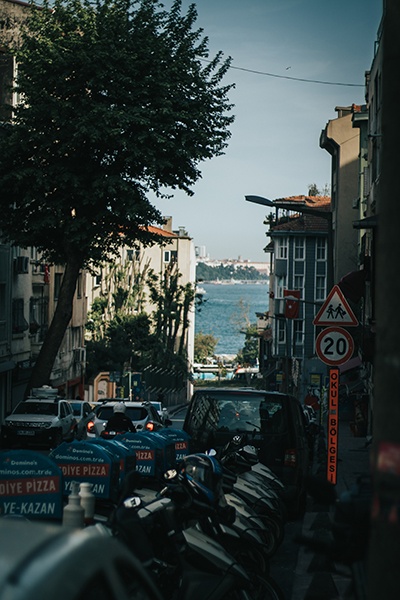
Taxis can be hailed on the street, and are metered. Prices for taxis vary depending on the town or city and are generally very affordable, but be aware that few taxi drivers speak English and many will try to take advantage of foreigners.
If you want to take the bus in the majority of towns and cities, you’ll need to buy tickets in advance from one of the many kiosks at terminals.
Istanbul operates a smartcard system a bit like an Oyster card for the London Underground.
Driving in Turkey
If you want to explore off the beaten track in Turkey, you might want to consider driving independently — but driving in Turkey is not without risks.
The standard of Turkish driving is quite poor with many aggressive drivers, and the country has a high road accident rate.
Drivers must have a valid driving licence to drive in Turkey. A UK national licence should be sufficient, but an international driving permit may be useful.
Roadblocks are frequently set up by Turkish police, so ensure that you have all the necessary paperwork to hand.
If you want to hire a car you must be over 21 years of age and have at least 1 years driving experience. There are major international car hire companies based in the major towns and cities.
Drive on the right hand side of the road, and give right of way to drivers coming from the right.
Stick to the speed limits of 50 km per hour in towns and villages, 90 km per hour on roads outside of town, and 120 km per hour on the motorways.
Weather in Turkey
Being such a large country, Turkey has a variety of different climatic regions.
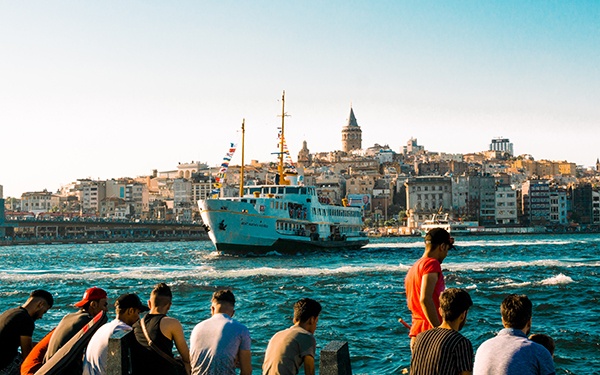
The Aegean and Mediterranean coasts boast hot, dry summers, and cool, rainy winters, whilst in the mountainous areas to the east spring and autumn are generally pleasant and mild, but the summers can be stifling, with the winter season bringing bitterly cold temperatures and abundant snowfall.
The Anatolian Plateau in the centre of the country experiences the most extreme weather conditions, with temperatures ranging from -30°C to -40°C in winter, to more than 30°C in the summer.
The climate in the west is far milder than that in the east. In Istanbul the climate is moderate, with winter temperatures averaging a mild 5°C and summer averages reaching an agreeable 25°C.
Turkey’s beautiful Black Sea coast, is often cloudy with relatively high levels of rainfall. Temperatures in this region range from -8°C in winter to 40°C in summer.
Cost of Living in Turkey
Lifestyle
The low cost of living in Turkey is a big bonus for Brits who move there.
As with anywhere else in the world, living in a city is more expensive than living in rural areas, and the capital city of Istanbul commands the highest living costs in the country. Accommodation costs aside, a family can have a good lifestyle in Istanbul for around 5000 lira per month.
Coastal living is far cheaper — around 20% less expensive than Istanbul. Groceries are significantly cheaper than in the UK, and it’s possible to eat well in restaurants very cheaply.
Alcohol prices have risen in Turkey in recent years due to tax increases, but still remain cheaper than back home. Local markets are the place to shop if you’re on a tight budget, and avoid more costly imported goods.
Public transport is very affordable, but if you choose to drive a car make sure that it’s a diesel, as petrol costs are relatively costly.
Utilities including gas, internet, and water are cheap, but beware of bumping up your electricity bills when using the air con in the summer heat.
Rent
Rent in Turkey is vastly cheaper than in the UK — even in the city — at around 70% less expensive on average.
There is a wide variety of accommodation available to suit all tastes and budgets, from luxury coastal villas to studio city apartments.
The rental price of property in Turkey varies greatly according to the type and quality of a residence, its location and age, and in the cities — whether or not it comes with parking.
Leases in Turkey are generally signed on a year-long basis.
Healthcare
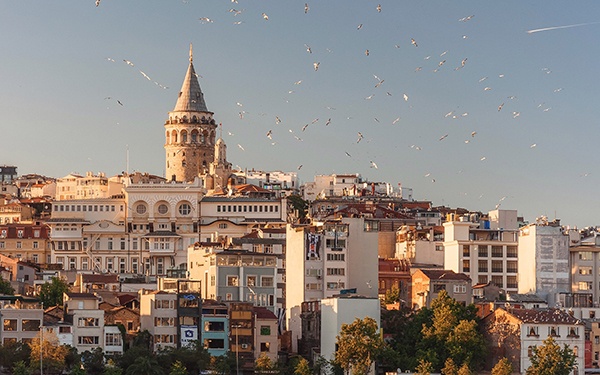
The standard of medical care provided in Turkish hospitals varies greatly, with major urban areas having the best private facilities and most qualified medical staff.
The price for private medical treatments is fairly reasonable by UK standards, and medicines and prescription drugs are cheap.
The costs for a visit to the doctor in Turkey typically start around 140 lira, and a visit to the dentist may cost upwards of 40 lira.
Expats under the age of 65 living in Turkey are required by law to have health insurance, as without it they are unable to obtain a residence or work permit. There are two health insurance options for Brits — either to take out a private healthcare plan, or to join the Social Security Institution (SGK) — Turkey’s public health insurance scheme.
Expats who have been a resident in Turkey for more than a year are able to apply to the SGK, and if you are working for a Turkish company, your company will register you with the SGK and will usually contribute to public health insurance on your behalf.
To join SGK you also have to have a health assessment, and pay a fixed monthly fee of 270 lira. This premium will cover a married couple and any dependents under the age of 18.
Those for whom the SGK is not an option are obliged to purchase private health insurance.
Local Turkish companies also offer the most competitive rates and services, and are far cheaper than international companies.
Schooling
With the standard of education at Turkish public schools being hit and miss, and the fact that lessons are taught in Turkish, expat families usually choose to send their children to an international school, even though public schools are free.
Places at international schools are limited, and the schools are primarily based in larger cities such as Izmir, Istanbul and Ankara.
Admission and enrolment procedures vary from school to school and tuition tends to be expensive, but offers high standards of learning, smaller class sizes, excellent facilities, and a wide range of extracurricular activities.
Tuition fees at the highly accredited British International School Istanbul cost around the equivalent of £8,000 to £22,500 per year.
Popular Areas for Brits
Istanbul
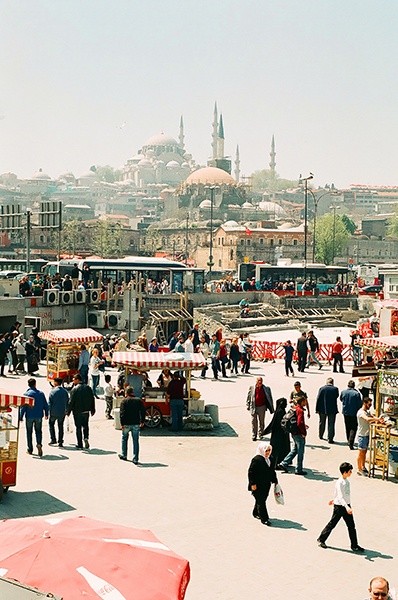
Turkey’s glorious capital city, Istanbul is the cultural, economic and financial hub of the country, and boasts superb schools, an excellent public transport system, and a large expat community.
Istanbul sits proudly astride two continents, uniting east and west, and features a magical landscape of towering minarets and glittering churches, mosques, and palaces.
The city offers an impressive array of galleries, museums and festivals to enjoy, as well as fabulous restaurants, great nightlife, bustling bazaars, cafés and boutiques.
Bodrum
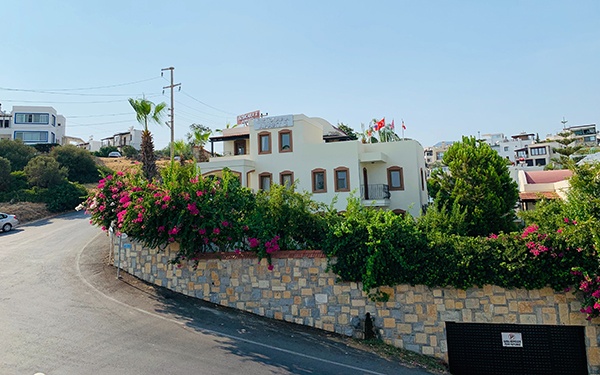
Another destination popular with expats, the elegant coastal town of Bodrum on a peninsula in western Turkey is blessed with beautiful beaches, hip restaurants and trendy nightclubs, fabulous shopping, pretty white washed houses, and a sparkling marina.
Bodrum attracts a well heeled crowd with its St Tropez vibe and wealth of entertainments.
Antalya
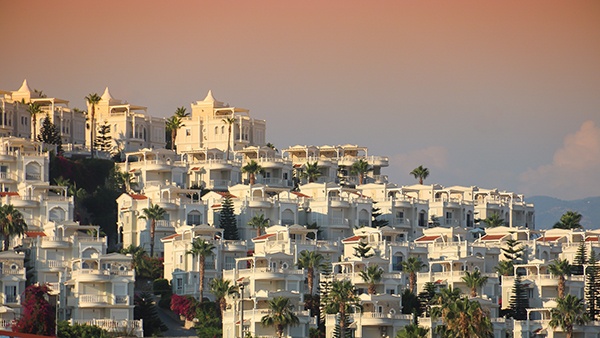
The Mediterranean city of Antalya is a prime tourist and expat destination. It’s perfect for lovers of beach life, with miles of pristine coastline and stunning sandy beaches.
The town is surrounded by incredible natural beauty as well as a host of interesting archaeological sites.
From swimming and sailing to sightseeing, mountain climbing and family fun, Antalya offers something for everyone.
Kusadasi
If you love to live it up, you’ll find plenty of fun in Kusadasi, Turkeys busiest cruise port on the Aegean coast. It’s home to a large Irish expat community who have set up multitude Irish pubs here, and it’s popular with party goers and families alike, as there are plenty of family friendly activities on offer as well as sensational nightlife.
Kusadasi lifestyle is laid back, and there are plenty of cafés, bars, and restaurants where you can sit back and watch the world go by.
Fethiye
The magnificent sheltered harbour is at the heart of this lively market town in Turkey’s Aegean region on the Turquoise Coast.
It boasts gorgeous natural surroundings and is the gateway to a whole host of interesting sites and blissful beaches.
Fethiye was built on the remains of the ancient city of Telmessos — the most important city in Lycian times — and some impressive rock tombs and ruins can be found here.
Altinkum
Altinkum means ‘Golden Sands’, and it is positioned in a lovely bay backed by some gentle, rolling hills. The town’s three blue flag beaches are the perfect location for lovers of watersports, with jet skis, water skiing, windsurfing, and more on offer.
The lively seafront is the place for browsing boutiques, sipping cocktails and admiring the views, or dining in one of the many fantastic restaurants.
Jobs in Turkey for British Expats
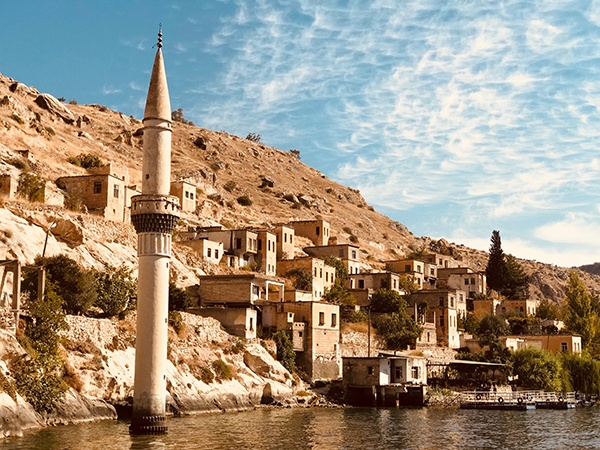
Finding a job as an expat in Turkey can be a challenge as many occupations are prohibited for foreigners — particularly those in the fields of medicine and law — and Turkish employers tend to favour applications from Turkish nationals.
The two major sectors that normally employ foreigners are tourism and teaching, and teaching languages in Turkish schools is one of the most popular jobs for expats, although wages tend to be fairly low.
Working in hotels, bars, and resorts are also popular options for Brits living in Turkey, although these types of occupations are not well paid either.
Global companies do operate from the major cities — Istanbul in particular — and there are a number of jobs available, notably in finance and IT.
To stand a better chance of finding work in Turkey, it is advisable to have a decent grasp of the Turkish language.
Are you considering a move to Turkey from the UK?


